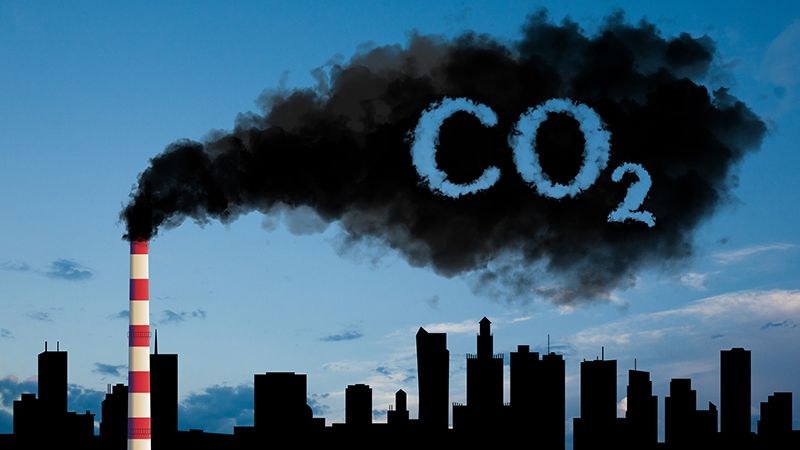Global carbon emissions from fossil fuels reached a record high in 2024, according to research by the Global Carbon Project science team released during COP29.
With projected emissions from land-use change, such as deforestation, of 4.2 billion tonnes, total CO2 emissions are projected to be 41.6 billion tonnes in 2024 – up 0.8% from 2023 and putting CO2 concentrations at 52% above pre-industrial levels.
Despite the urgent need to cut emissions to slow climate change, the researchers said there is still “no sign” that the world has reached a peak in fossil CO2 emissions. Progress in deploying clean energy has not accelerated fast enough, and the number of natural gas and oil extraction projects continued to rise in 2024.
Researchers warned, therefore, there is a 50% chance the carbon budget required to keep global warming at 1.5°C could be exceeded in just six years.
The research team included the University of Exeter, the University of East Anglia, CICERO Center for International Climate Research, Ludwig-Maximilian-University Munich, Alfred-Wegener-Institut and 80 other institutions around the world.
“The impacts of climate change are becoming increasingly dramatic, yet we still see no sign that burning of fossil fuels has peaked,” said Professor Pierre Friedlingstein, of Exeter’s Global Systems Institute, who led the study.
“Time is running out to meet the Paris Agreement goals – and world leaders meeting at COP29 must bring about rapid and deep cuts to fossil fuel emissions to give us a chance of staying well below 2°C warming above pre-industrial levels.”
Global emissions peak ‘remains elusive’
Despite another rise in global emissions, the data also shows evidence of widespread climate action, with a growing penetration of renewables and electric cars displacing fossil fuels, and decreasing deforestation emissions in the past decades confirmed for the first time.
However, though land-use change emissions are decreasing, they are still high, at 4.2 GtCO2 in 2024. Brazil, Indonesia, and the Democratic Republic of the Congo together contribute 60% are the largest contributors. Meanwhile, permanent CO2 removal through reforestation and afforestation is offsetting only about half of the permanent deforestation emissions.
Researchers also found that current levels of technology-based carbon dioxide removal only account for about one millionth of the CO2 emitted from fossil fuels. Carbon capture technology has long been touted as a key piece of the puzzle in reducing global carbon emissions, but critics say it has yet to be proven at scale. This hasn’t stopped the UK government, for example, committing £22bn of investment to develop carbon capture clusters in Teeside and Merseyside.
Dr. Glen Peters, of the CICERO Center for International Climate Research in Oslo, said: “There are many signs of positive progress at the country level, and a feeling that a peak in global fossil CO2 emissions is imminent, but the global peak remains elusive.
“Climate action is a collective problem, and while gradual emission reductions are occurring in some countries, increases continue in others.
“Progress in all countries needs to accelerate fast enough to put global emissions on a downward trajectory towards net zero.”
Professor Friedlingstein added: “Until we reach net zero CO2 emissions globally, world temperatures will continue to rise and cause increasingly severe impacts.”








